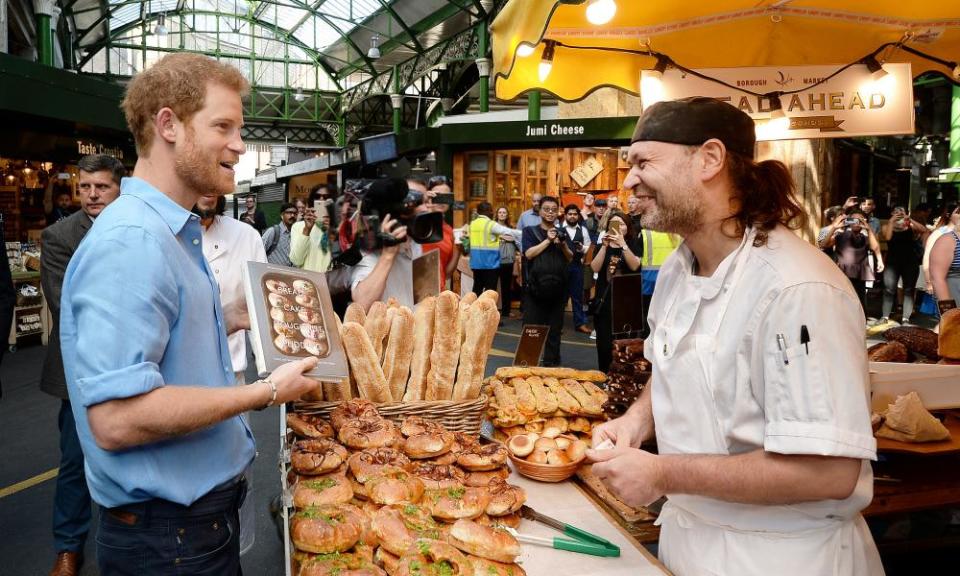Sorry, Prince Harry. There’s no such thing as a modern royal family | Zoe Williams

High office looks like an almighty ball-ache, with only two mitigating factors: first, that it comes with power, and second, that it represents the apex of personal achievement. Neither could be said of the crown. All it has going for it is a property portfolio, an entourage and a couple of fancy trains, which are not the bits Prince Harry wants out of, according to the interview he gave Newsweek.
The kindest thing to do to the royal family is to ignore it. The alternative is a boom-arm swing between cruelty and sycophancy, iterated with singular if predictable clarity in the Mail on Sunday’s observational piece . “The Reluctant Prince,” it calls Harry, like a propagandist’s fairytale, explaining to children why the monarchy was A-OK, on the eve of a revolution. His past weaknesses are paraded in a primitive ritual, humiliated criminals bound at the neck: once upon a time, he drank and “smoked heavily”. Never has so much debauchery and innuendo been laid at the feet of nicotine.
Nowadays, though, he is a leader, with “techniques” – “One was to leap from the official car, rush towards whoever is in charge and firmly shake their hand”; “Another is to completely focus on the individual he talks to – them and only them. He doesn’t look around … and listens carefully to what they say.” The praise is actually more insulting than the disapproval, but both must be horribly onerous.
If any of this beleaguered lot shows a sign of being human, the bunting goes up: the Queen expresses sorrow at the incineration of scores of her citizens, and suddenly she’s the mother of the nation; Prince William sends his son to a nursery and he’s a man of the people. Kate wears a dress made of lace and she’s fashion-forward but behind on dignity … choices, choices, do we love her or hate her?
Royalists will allow no weakness from this family yet demand normality; they fawn over wealth yet require a constant show of humility. When the contradictions become too great, they simply shut up for a bit. For the subject, then, the royal family is an intermittent presence in our cultural life; for the Windsors themselves, the surveillance must feel as good as constant. Any vestige of respect, not for the proud history of the office but for the poor schmucks who inherited it, would prompt a decent person to turn away and leave them to it.
Except for one small thing: there is a clash of worldviews, here, that has cultural and constitutional significance. The Queen embodies the old worldview: it is true that she has an iPad and a Twitter account, but her values are the ancient ones of duty to the nation. Her sense of responsibility attaches itself to form in a way that is both absurd and touching – she would meet the Obamas on the lawn at Windsor, even if, in her state of health, that meant getting a Range Rover from the front door. She effaces herself so completely that we have to guess her views on Brexit by forensically analysing her hat.
For her descendants, meanwhile, the duty is the bit they like the least. Nobody wants to be head of state yet nobody is rushing to disband the monarchy, which is what that reluctance really entails. They do not want to efface themselves, they want to inhabit themselves, be themselves. Fair enough, that’s what we all want: yet they have to command something greater than fellow-feeling, something more like fealty, otherwise the logic of their position disintegrates.
Today, you cannot be a modern royal simply by wearing deck shoes and using Snapchat
At its simplest, if they’re just flesh-and-blood, why do we have to keep giving them so much money? If they’re just public sector workers, shouldn’t they be subject to key performance indicators, to a pay freeze and the bedroom tax? If they’re just a tourist attraction, whither the dignity that makes them attractive?
The portrait of our politics as old versus young is ham-fisted – the real fault line is nostalgia versus modernity. Nostalgia has been tested rather brutally over the past year, as airy promises about returning Britain to its former greatness have turned out to be delusional at best.
Yet modernity has its own contradictions, its own hard choices. National duty is over. The idea of subsuming oneself to a puffed-up patriotism or set of abstract hierarchies feels fatally unconvincing to a young royal now, or indeed, a young anyone. But it’s hard to find meaning if you won’t subsume yourself to anything; the natural successor to the age of duty is not individualism but solidarity. Similarly, the stiff upper lip is over; the ability to quash one’s own emotions is no longer laudable, it is pitiable.
But openness leads inexorably to pluralism: if feelings matter at all, then everybody’s feelings matter equally. Harry may imagine his family’s predicament to be rather common – so what if no one wants to be king? There’s a Conservative party clinging to power in which no one wants to be prime minister.
Yet he has arrived at the cliff edge of a crisis that’s been building for decades. Today, you cannot be a modern royal simply by wearing deck shoes and using Snapchat. To be modern, you must cease to be royal.

 Yahoo News
Yahoo News 